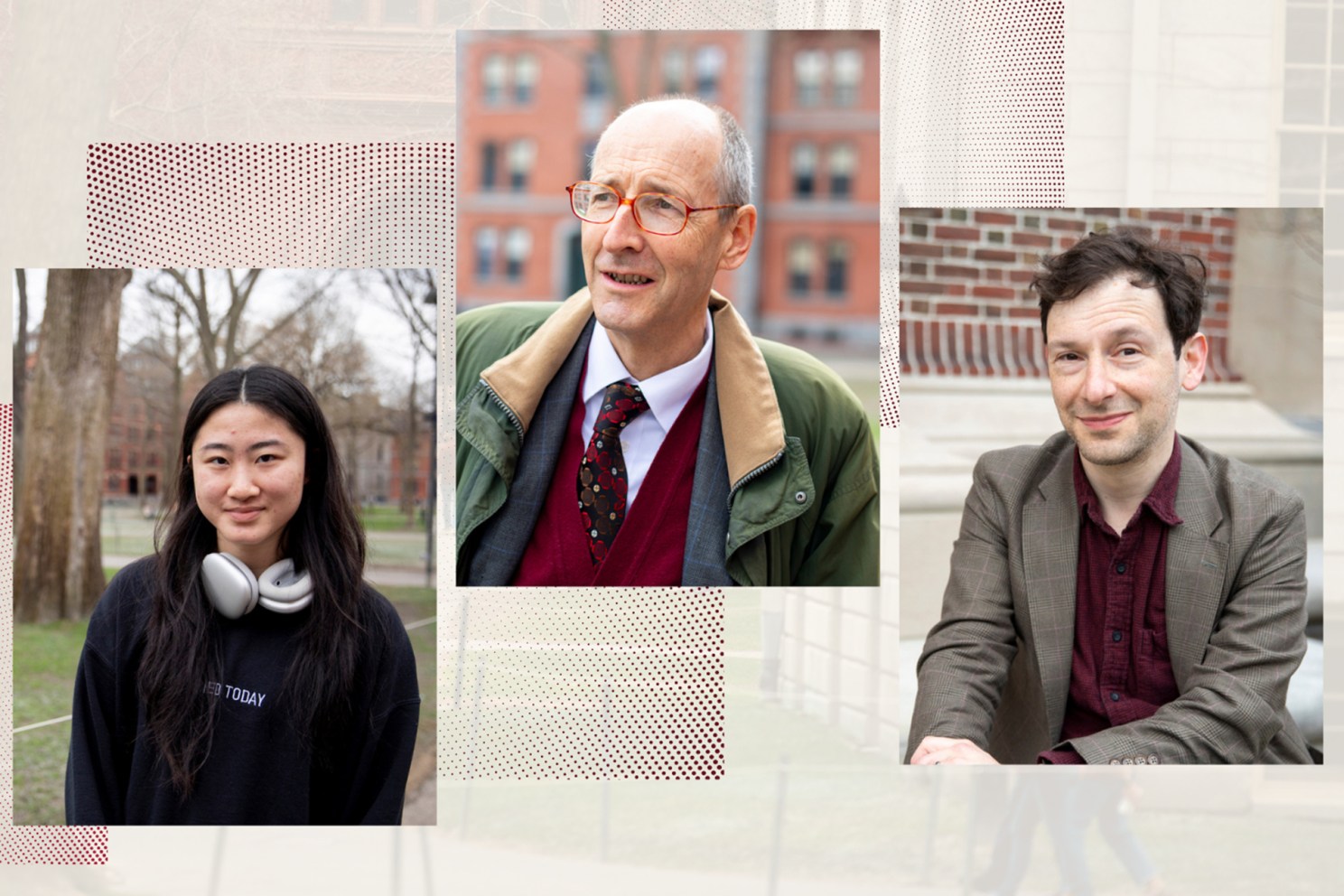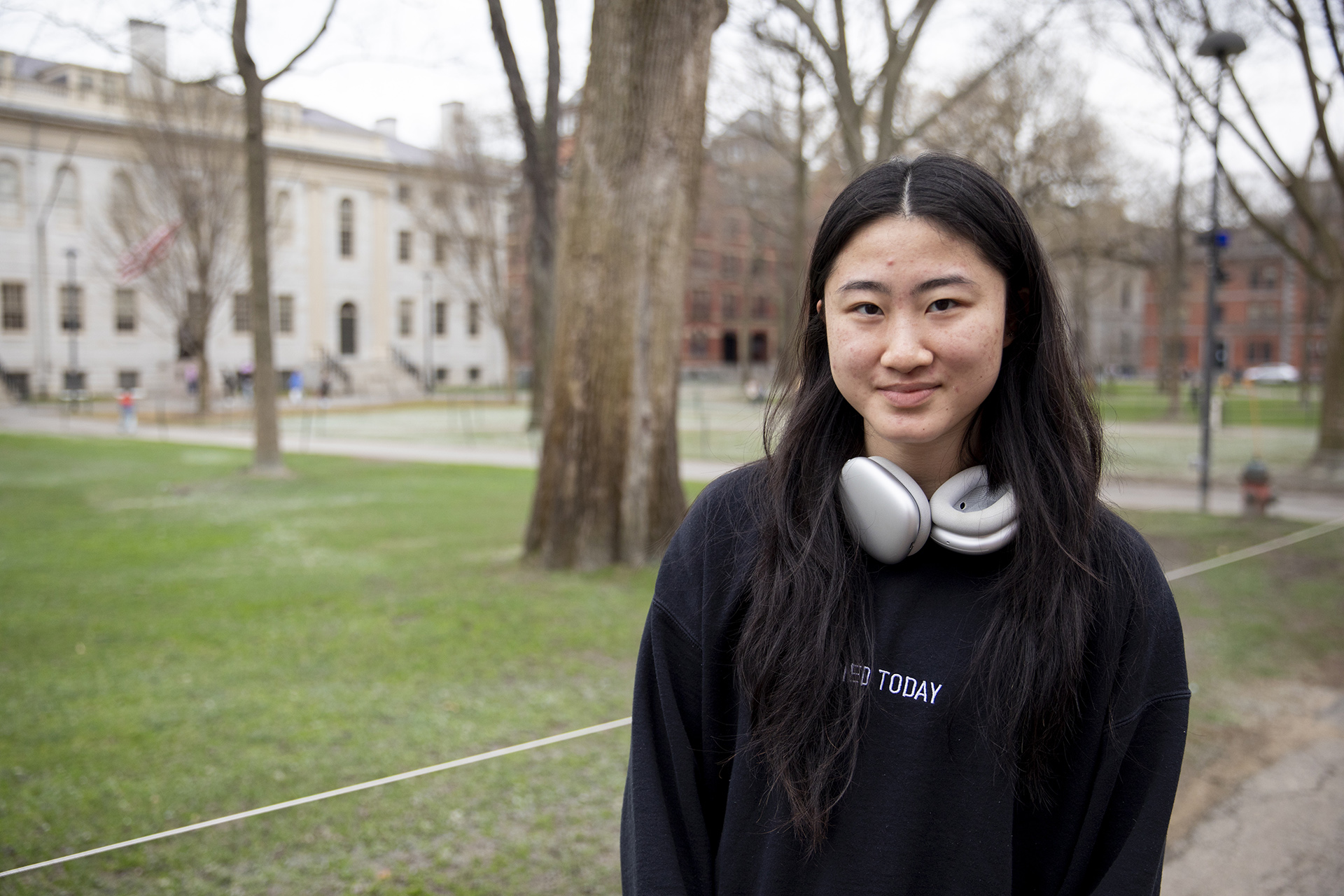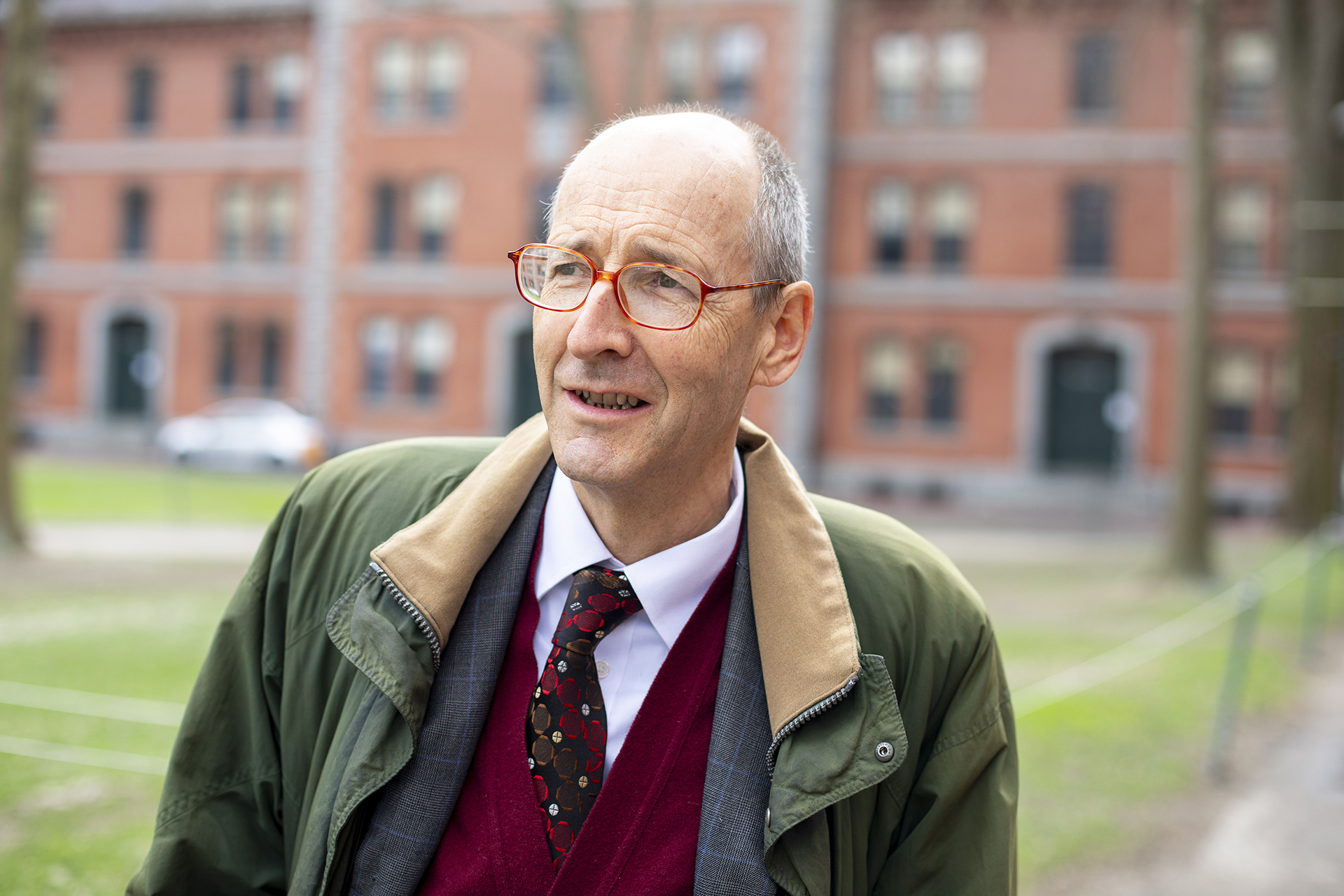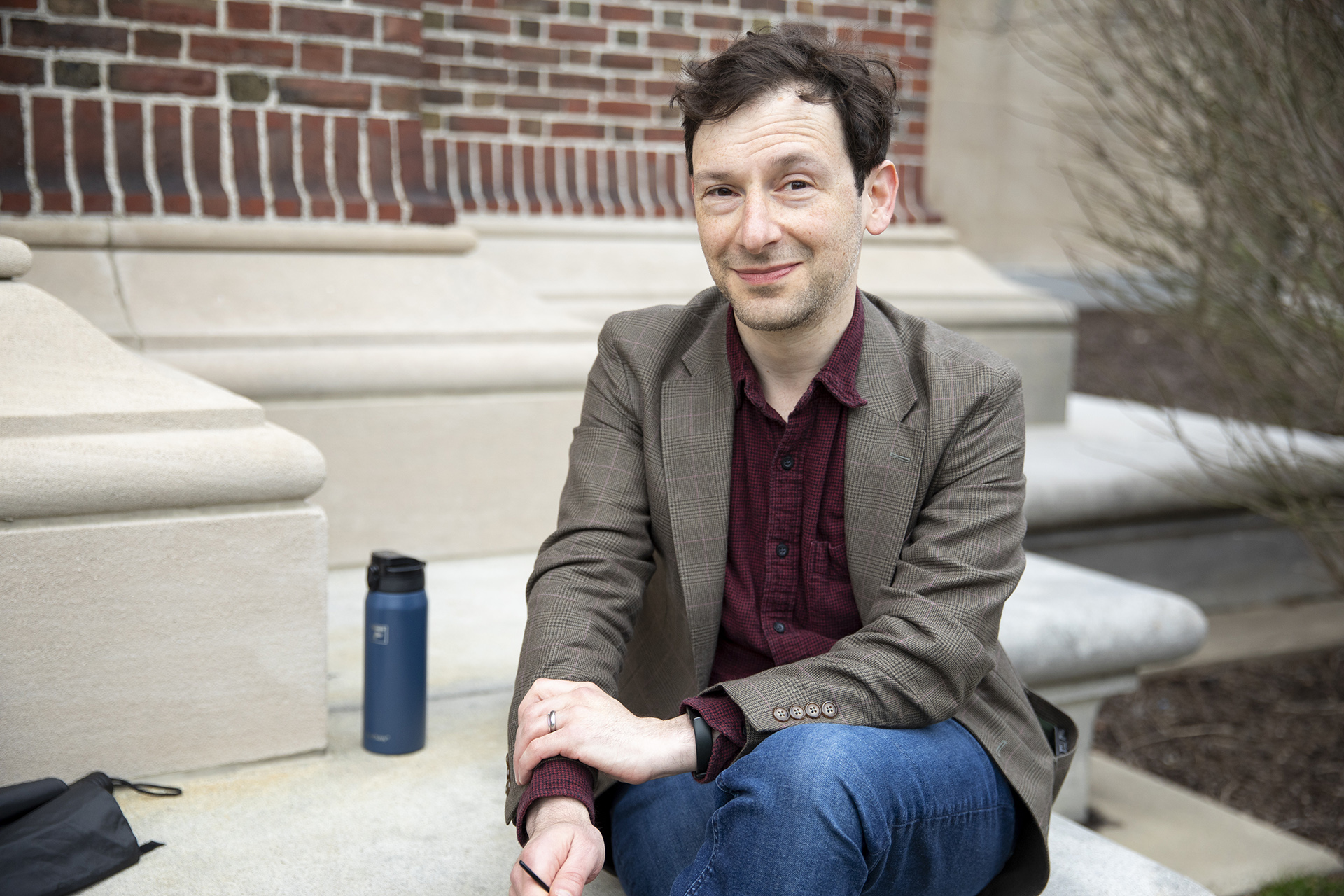‘This is weakening the United States.’

Photos by Veasey Conway/Harvard Staff Photographer; photo illustration by Liz Zonarich/Harvard Staff
Scholars react to Trump administration actions against Harvard and other institutions
Harvard on Monday rejected demands by the Trump administration that link $9 billion in federal funding to compliance with changes to University governance and hiring practices, viewpoint “audits” of academic departments, students, and faculty, and other measures.
The funding, more than $2 billion of which was frozen hours after Harvard responded to the demands, supports research that “has led to groundbreaking innovations across a wide range of medical, engineering, and scientific fields,” according to a message President Alan Garber sent to the Harvard community Monday afternoon.
The government has cited concerns about campus antisemitism in explaining its decision to halt funding at Harvard and several other institutions of higher education.
On Tuesday, we sought reactions to the funding cuts in conversations across campus.

Harvard University
Amberly Xie
Third-year Ph.D. student in applied physics
“I feel like at some core level, it violates our rights as people and researchers and scientists — and as a university as well,” said Xie, whose research focuses in part on quantum computing.
Like many students and scholars, she worries that major funding cuts at institutions such as Harvard will slow or in some cases halt scientific progress.
“Universities play a major role because it’s where a lot of research takes place,” she said. “There are companies and startups that do this kind of work, but I feel like it’s truly in universities where a lot of the fundamental work is done, and a lot of the pioneering work in terms of allowing us to not only better understand the platforms like the ones I work with, but also help put them into real-world applications.”

Harvard University
Andrew Tyrie
Senior fellow at the Mossavar-Rahmani Center for Business and Government at Harvard Kennedy School; former member of the House of Commons in the British Parliament; current member of the House of Lords
“I think there’s a much bigger job to be done, and that is for all those who disagree with the dramatic and, in my view, dangerous decisions being taken by the new administration to speak up,” said Tyrie, who is studying regulatory reforms in advanced Western economies in his time at the Kennedy School.
Everyone engaged in academia and politics should be outraged by the Trump administration’s stance, he said.
“And of course, as a non-U.S. citizen, I am concerned about the wider effects on the world — both the prospects for growth and prosperity, but also for its security and stability,” he said. “What I’m not asking is for people to speak up in the interests of the world, but to speak up in the interests of the United States of America. This is weakening the United States and imperiling the prosperity and the security of millions of Americans.”

Harvard University
Joshua Cherniss
Visiting fellow at the Edmond and Lily Safra Center for Ethics; associate professor of government at Georgetown University
“I study, to some extent, authoritarian regimes, and I think that some of what we’re seeing — while it’s not equivalent to fully formed authoritarianism — is starting to approach it in terms of trying to have the government dictate the ideas that are taught, that can be expressed and that can’t be expressed,” said Cherniss. “I think that it’s important that Harvard and other universities not buckle under what I think is pretty clearly an assault on academic freedom and university self-governance.”
Cherniss studies political theory, particularly defenses and critiques of liberalism. He said he worries about the impact of funding freezes on fellow scholars inside and outside his field.
“We may have to cut a lot of the most socially useful work that we do in medical sciences and technology — things that have really benefited America and benefit the world in very practical ways,” he said.




